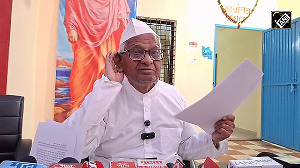The Centre on Wednesday scrapped the mandatory human safety tests for electric vehicle (EV) batteries required to qualify for incentives under various government schemes.

The ministry of heavy industries, in its fresh guidelines, has made compliance with the ministry of road transport and highways (MoRTH’s) prevailing EV battery testing standards the only requirement to get incentives under the Centre’s various incentive schemes.
“EV safety and battery safety compliance requirements have already seen stringent standards notified by the ministry of road transport and highways.
"Therefore, the above compliance is adequate and to be followed,” the ministry of heavy industries guidelines said.
Business Standard first reported, on August 1, about the ministry's view to scrapping the mandatory testing parameters.
The ministry, on November 2, 2022, introduced these tests but the industry received a six-month extension in April.
On April 29, Business Standard first reported about the ministry’s decision to give a six-month deadline extension until October 1.
The decision to eliminate the mandatory human safety tests follows the findings of a committee led by the Automotive Research Association of India (ARAI) director.
The findings concluded that the MoRTH testing standards are adequate for the present needs of the EV industry.
ARAI is a prime testing and certification agency notified by the Government of India.
The two nodal ministries — ministry of heavy industries and MoRTH — responsible for regulating the transport and EV sectors, announced separate sets of battery safety standards.
This came after dozens of incidents of EV fires were reported in the country last year.
The ministry of heavy industries had made human safety tests mandatory to get incentives under the Faster Adoption and Manufacturing of (Hybrid &) Electric Vehicles in India (FAME II) and production-linked incentive (PLI) schemes for automotive and auto components as well as advanced chemistry cells.
The heavy industry ministry’s testing parameters were more stringent than the MoRTH, and required checks at three levels — the cell, battery management system, and the battery pack.
MoRTH’s guidelines were also mandatory for the manufacturing of the vehicles.
Government officials said the ministry’s decision to scrap the norms is also driven by its breach of administrative control.
“The manufacturing, registration, and rules related to the operations of automobiles fall within MoRTH’s domain.
"Since MoRTH testing standards are already in place, there is no need for additional certification,” said an official involved in the decision.











